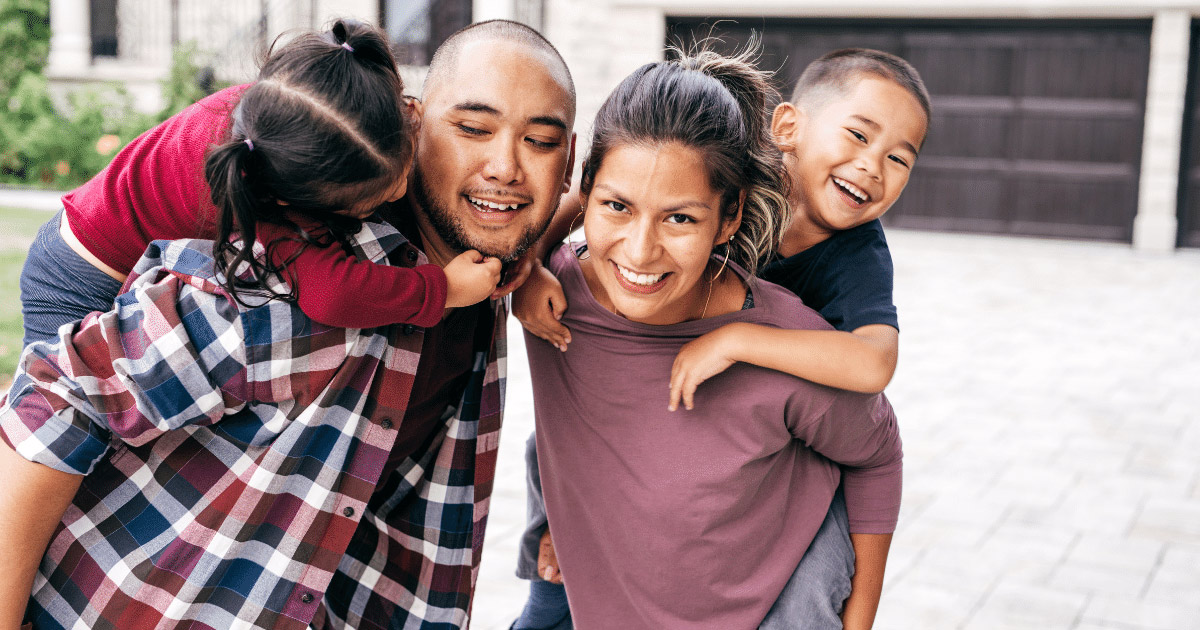Three Tips for Raising ‘Good’ Kids

By Kate Garzón
Sometimes parents come to me because they want guidance for specific issues…temper tantrums; sibling rivalry; sleep; school success and motivation; they feel themselves drifting apart from (or fighting with!) their tweens and teens; or they would like to be better at parenting on the same page as their spouse (or ex-spouse, as the case may be). However, something that I often hear from these loving and attentive parents is “I just want to raise good kids! Help!” More specifically, they want to raise children—who become adults—who are happy and emotionally healthy; contributing to society in positive ways; gainfully employed; have strong relationships with good people; and—most importantly—who aren’t living in their basement when they’re 40. Not asking for much, right?
Actually, they’re not. These are reasonable goals with relatively high odds of success…if you do a few things well, more-or-less consistently, over their formative years, the chances are decent that your kids will turn out just fine. So, without further ado, I present to you “Three Tips for Raising Good Kids.” Enjoy!
1. Protect your relationship with them, above all else.
A strong relationship with your children will be their primary protective factor throughout their lifetimes. It will be the thing that brings them back to you when they’re hurt, scared, angry, in danger, in trouble, or have made a mistake and need help to dig themselves out. Knowing that they can trust you to be their safe place, that you will help them to problem-solve, and that you love spending time with them will ensure that, no matter how bad it gets for them, they’ll come to you. You will be their primary protection against depression, addiction, excessive risk-taking behaviors, and unhealthy relationships, and you’ll be their support system if any of those circumstances do occur. Spend time with them doing things that they love; listen to them when they talk to you (even when the timing is inconvenient, or the topic is uncomfortable); and take an interest in their friends and their lives. Love them through the eye-rolling, the door-slamming, the “I hate you and you don’t understand me at all!” and the awkwardness of them trying to figure out how to come back to you after they’ve said things they didn’t mean. Most importantly, when there’s a rupture in the relationship (which is inevitable, because we all lose our tempers or don’t handle things as well as we could have sometimes) apologize and make amends. Teach them that when YOU make a mistake you trust them to love you, because that will show them that when THEY make a mistake, they can trust you to love them too.
2. Set boundaries.
Being their safe space doesn’t mean their lives are without consequences. Every choice they make in life will have an outcome, and it’s essential that they learn from a young age that THEY are responsible for being accountable when their choices or actions break rules or cause harm to others. Create reasonable boundaries that are appropriate for their ages and developmental stages, and kindly but firmly hold those boundaries tight—even when they’re angry. Be there to support them while they feel the consequences of their choices, and problem-solve with them regarding how to make amends…but please don’t rescue them from their responsibilities as humans.
3. Make chores a part of their lives from a very young age.
Including children and teens in the responsibilities and decisions of the household is how they’ll learn necessary life skills; how they’ll develop the abilities to organize and problem-solve and manage their time; and it’s why they’ll feel like valued, contributing members of the family, which has direct links to confidence and self-esteem. It sounds simple but it has profound, positive impacts for the whole family, especially as your children become teens and young adults. Knowing they’re needed brings meaning and purpose to young lives while they’re figuring out how they want to contribute to the world at large.
And that’s it. If you were expecting a list of rules that needed to be followed perfectly in order to raise good kids, I hope you’re not disappointed. If you do these three things, more-or-less consistently, throughout their formative years, they’re probably going to turn out just fine. And if you haven’t been doing them so far, it’s never too late to start.
About Kate Garzón
Kate is a GPS for the parents of toddlers through teens! A parent educator and parenting coach with over 30 years of experience supporting children and families, Kate brings a unique combination of relevant educational background, practical strategies, and a commitment to continually seeking current resources. Her compassionate, non-judgmental approach will put you at ease as you work towards your family’s goals. You’re in the driver’s seat, and Kate is the GPS guiding your parenting journey. Visit her website or find her on Instagram and Facebook.


